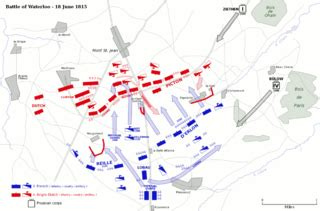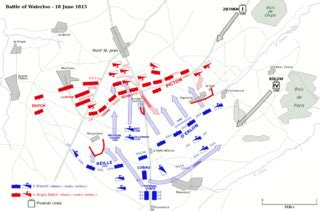This article continues our project explaining each stanza of Sun Tzu’s work. The English and Chinese are from my award-winning translation, The Art of War and The Ancient Chinese Revealed. Start here for the book’s opening lines.
The lines discussed here are the first stanza of the sixth Section of Chapter 6 of The Art of War. They continue the lessons on knowledge and ignorance begun in Sun Tzu’s first chapter. Ignorance and knowledge are a specific form of emptiness and fullness, also known as weakness and strength, the topic of this chapter. The specific topic here is how our knowledge of the place and time of battle. Our knowledge gives or fails to give us the ability to prepare our strengths where they are needed for a specific competitive event.
Sun Tzu’s work is primarily concerned with our strengths and weaknesses in decision-making. All competition is a comparison between alternatives. That battle among alternatives exists in every choice we make and in every choice that is made about us by others. These choices are always based on limited knowledge. Information itself is based on passed events because we are ignorant of future ones. We only get a foreshadowing of the future when we gain insights into other people’s plans and desires.
Another common strategic mistake is assuming that what we know is important. Once more, the opposite is more often true. It is usually what we don’t know that is the most important. What we know is often helpful, occasionally vital, and, more often than we like, irrelevant. Our individual knowledge is always unique because we can know our own minds better than anyone else’s.
This stanza discusses one very specific type of information: knowing of when and where the “battleground” will be. Since the place and times of comparison that concern us are the minds of others whose decisions affect our lives, there are always many potential battlegrounds surrounding us.
Time and Place
This stanza is only three lines, but they deal with the power of knowledge. In the previous article, the topic was how a place, that is, an established position, is needed to create any form of strength or fullness.
In the quotations below, we summarize each Chinese character as a single English word shown in < > brackets.
<Make> <knowledge> <battle> <’s> <ground>
We <make> the knowledge of the battleground by choosing where we want to move or expand. In the battle for minds, we choose whose decisions we want to focus our efforts toward affecting. Do we choose our immediate boss at work or our boss’s boss. Or, at the moment, are our spouses’ decisions more important to us? Strength and success in one competitive arena tends to carry over to other areas of our lives, but our time is always limited, so choices must be made between our professional, family, and social lives.
Practical Strategy is a reader-supported publication, but between now and Christmas, all new posts will be free to everyone who registers
Once we make that choice, we must listen, the first skill of the progress cycle, in order to learn the decision-maker’s thinking about when their choices regarding us will be made. Good listening, including asking questions, a part of listening, gives us insight into time that the decision will be made.
We choose our ground but the mental ground we choose determines the time.
<Then> <can> <thousand> <miles> <but> <meet> <battle>
Decisions regarding our future are made at different times. We decide whether we need to pay attention to the immediate future or if we should work more long range. Generally speaking, Sun Tzu’s methods focuses us on the more immediate decisions because they usually are the most certain. However, the point here is that, if a key decision about us is to be made, it doesn’t matter how far distant in space or time it is. What matters is the certainty of our knowledge. Our sure knowledge of the event allows us to start preparing our strengths and weaknesses for that future comparison to others.
The Value of Information
With the last line in this stanza and the last line of the next one, Sun Tzu sets the value of this knowledge of time and place. Here, Sun Tzu wrote that a thousand miles was not too far if we know the time and place of the comparison, but in the next, he writes that ten miles is too far if we do not know these things. Knowledge is worth a hundred times more than ignorance.
Working far ahead or far away is more costly than working close to home, but our knowledge is more important than any other costs. The more certain our knowledge, the better we can work out our paths to the future. Elon Musk’s goal of building interplanetary rockets is a good example. He started with enough resources to reach the first decision point for others: a less expensive orbital booster. Who he chose as the investors in SpaceX determined that goal. His limited money set the time. His resources proved to be barely sufficient, but because he knew the time and place of battle and was committed to learning quickly from his failures, he was able to get it done.
Though we usually seek to advance our positions in small steps and expand into nearby areas, we do this because our knowledge tends to be better when it is closer to home. A few people like Elon Musk can master knowledge very quickly that is far afield from their past experience. Once more, it is the degree of knowledge that is important. Our positions are how others rank us in their mental hierarchies. By launching his first rocket and by building his first car factory, Elon Musk was able to change how other saw him. He advances that opinion every time he passes a new benchmark on his journey to Mars.
We see similar confusion about the place and time of battle in many of the most famous military battles of the last several centuries, including, to some degree, the battle of Waterloo during the Napoleonic wars. Wellington chose the battleground but, to some degree, Napoleon chose the time.
Knowledge is important because it replaces all other resources: time, effort, money, and so on. It is best to think of this replacement value as a hundred to one so that we don’t underestimate it.
In the next article, we will look at the problems associated with ignorance about the places and times of comparison.





